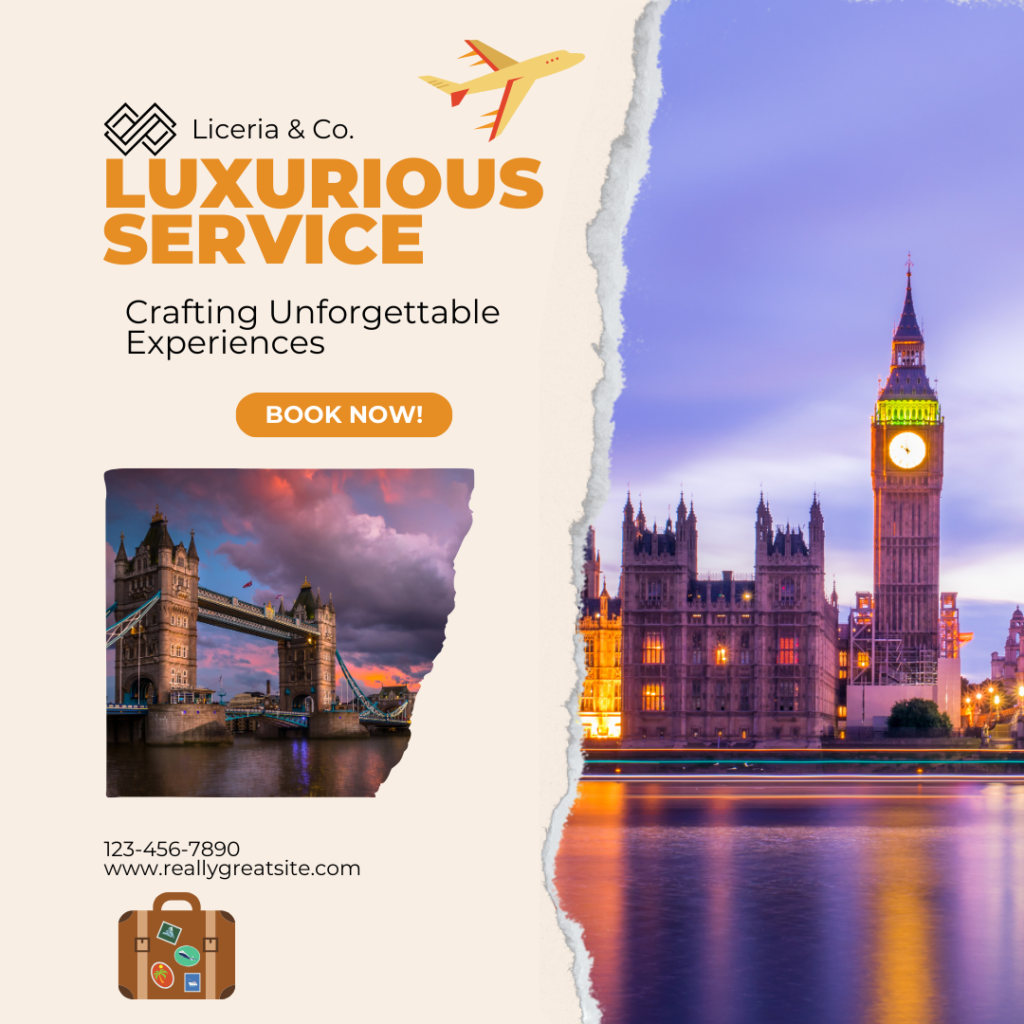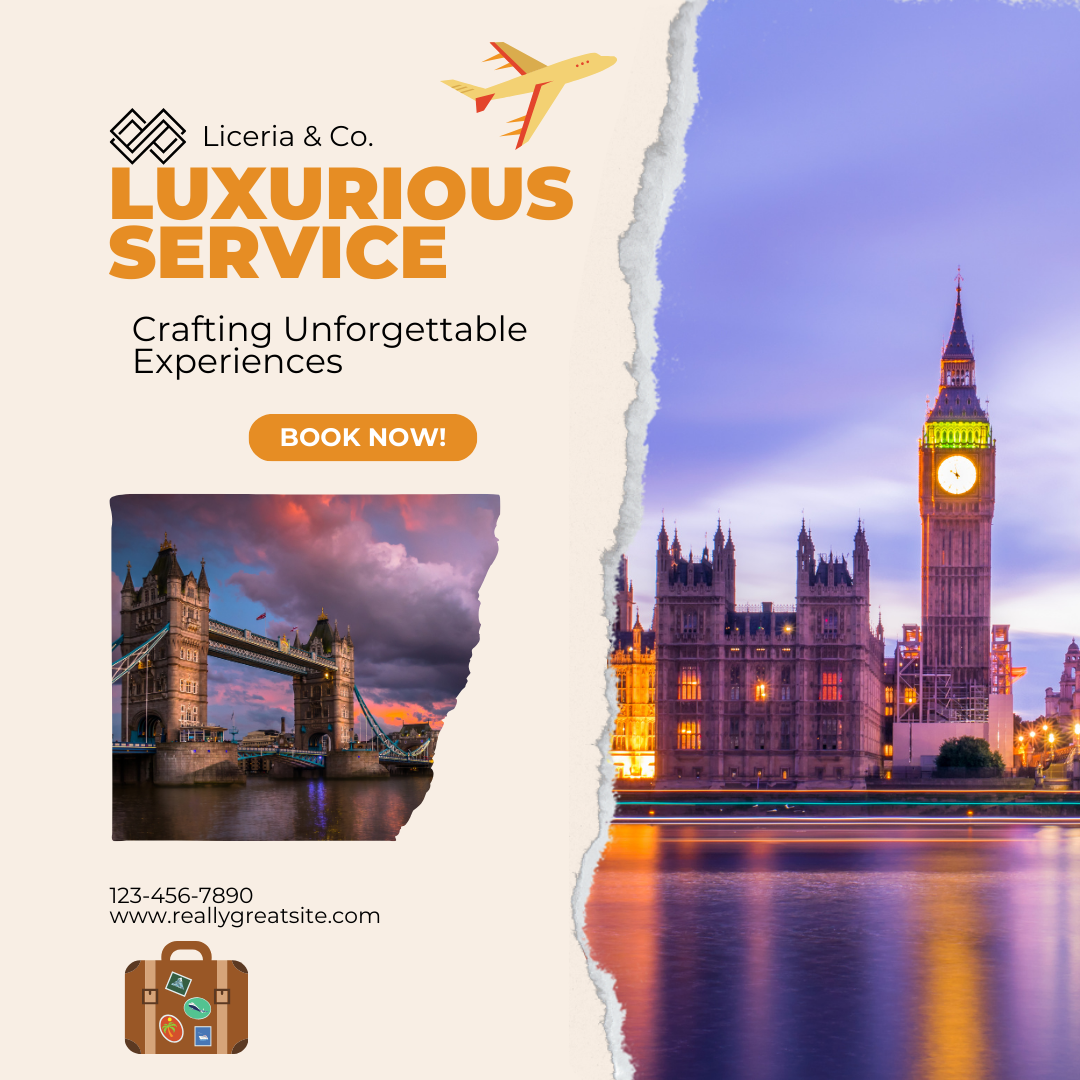In today’s competitive landscape, luxurious service has become the gold standard in industries ranging from hospitality to retail. This goes beyond high-end products and prestigious locations; luxurious service is all about delivering exceptional, customized, and often anticipatory experiences that make clients feel valued and respected. Luxurious service emphasizes quality over quantity, focusing on personalizing every interaction to meet and exceed clients’ expectations.
This guide explores what luxurious service entails, the industries that exemplify it, and strategies to create memorable, client-focused experiences that elevate businesses to the top.

What Defines Luxurious Service?
Luxurious service is defined by high standards of excellence, personalization, exclusivity, and attention to detail. It’s not just about providing good service; it’s about creating an unforgettable experience that leaves a lasting impression on clients.
Key Components of Luxurious Service:
- Personalization: Tailoring each experience to the client’s unique preferences and desires.
- Attention to Detail: Every element, from the environment to the choice of words, is carefully curated to enhance the client experience.
- Anticipation of Needs: True luxurious service professionals predict needs and deliver solutions before the client even asks.
- Seamless and Discreet Service: Luxurious service is often subtle, making the experience feel effortless and sophisticated.
- High Quality and Exclusivity: Offering unique, high-quality products, experiences, or environments that are not easily accessible elsewhere.
Examples of Luxurious Service Across Industries
Luxurious service spans various sectors, each tailoring its approach to meet the unique needs of its clients. Here are a few examples of how different industries exemplify this level of service.
1. Hospitality and Hotels
Luxury hotels are leaders in delivering five-star service that makes guests feel truly special. Brands like The Ritz-Carlton, Aman Resorts, and Four Seasons are known for their exceptional hospitality and personalized guest experiences. Whether it’s a pillow menu for personalized sleep comfort or a dedicated butler to handle every request, these hotels create an atmosphere of complete relaxation and opulence.
- Personalized Welcomes: Greeting guests by name and remembering their preferences, from favorite wine to room temperature.
- Dedicated Concierge Services: Offering personalized itinerary planning, exclusive event access, and private tours.
- Impeccable Attention to Ambience: Beautifully designed spaces, soothing scents, and tranquil music create an immersive, luxurious experience.
2. Private Aviation and Yachting
Private jets and yachts epitomize luxurious service, providing unmatched privacy, convenience, and customized experiences. Companies like NetJets and Lürssen Yachts specialize in this exclusive service, where every aspect of the journey is meticulously planned.
- Customized Itineraries: Every trip is designed to the client’s specifications, whether that’s a scenic coastal route or a direct flight to a secluded island.
- On-Board Personal Chefs: Offering meals tailored to dietary preferences, crafted by world-class chefs.
- Discrete and Attentive Crew: A crew that knows when to offer help and when to give privacy, creating a refined, relaxing environment.
3. High-End Retail and Personal Shopping
Luxury retail is about providing a shopping experience that’s as elegant as the products themselves. Brands like Gucci, Louis Vuitton, and Chanel excel in creating exclusive shopping environments with one-on-one attention, private showings, and customized fittings.
- Personal Stylists: These professionals understand each client’s taste and offer tailored recommendations, whether it’s for an everyday outfit or a special occasion.
- Private Shopping Appointments: Clients receive a dedicated time to browse collections in a private, comfortable setting.
- Customization and Monogramming: Many high-end retailers offer personalization options, from monograms to bespoke items made just for the client.
4. Fine Dining and Culinary Experiences
Michelin-starred restaurants and private culinary experiences are synonymous with luxurious service. Establishments like The French Laundry and Nobu are known not only for their exquisite dishes but also for the attention and precision with which they serve every guest.
- Unique Tasting Menus: Custom-created by chefs to reflect the guest’s preferences, featuring rare ingredients and creative flavors.
- Wine Pairing by Sommeliers: Expert wine recommendations that enhance the flavors of each course.
- Personalized Service: Staff who are trained to understand each guest’s needs, from dietary restrictions to preferred seating arrangements.
Strategies for Delivering Luxurious Service
Implementing luxurious service requires a strategic approach, a commitment to excellence, and training that empowers employees to make every client feel valued. Here are some key strategies for creating this exceptional level of service.
1. Know Your Client Deeply
Understanding client preferences, habits, and desires is the cornerstone of luxurious service. Gathering information before a client’s arrival and maintaining detailed profiles helps create a seamless, personalized experience.
- Client Profiles: Track preferences in food, activities, or products to personalize each encounter.
- Detailed Observations: Train staff to pick up on subtle cues and preferences, allowing for unobtrusive, anticipatory service.
2. Invest in Employee Training and Empowerment
Staff are the face of luxurious service. Training employees to anticipate client needs, respond discreetly, and handle special requests with ease is essential.
- Empowering Decision-Making: Allow employees the autonomy to go above and beyond for clients, whether that’s upgrading a room or accommodating a last-minute request.
- Soft Skills Training: Teach employees to read body language, provide attentive service without intruding, and maintain professionalism.
- Refinement in Speech and Etiquette: Luxury service requires polished communication that is respectful, knowledgeable, and reassuring.
3. Focus on Atmosphere and Ambiance
Creating a luxurious environment goes beyond appearances; it’s about stimulating all senses. Whether in a luxury hotel or a high-end boutique, the setting should evoke elegance and comfort.
- Ambient Lighting and Decor: Use high-quality materials, calming colors, and well-designed spaces to create a soothing atmosphere.
- Signature Scents: Many luxury hotels and retailers use unique fragrances that create a memorable ambiance.
- Music and Soundscapes: Curate playlists or soundscapes that reflect the brand’s identity and enhance the client’s mood.
4. Deliver Seamless and Discreet Service
True luxurious service feels effortless and unobtrusive. Clients should feel attended to without the service being overwhelming or intrusive.
- Anticipate Needs Without Asking: Knowing when to refill a glass or discreetly remove plates without interrupting conversation is essential.
- Offer Privacy and Space: Understanding that luxury clients often value privacy, staff should respect personal space, especially in high-end hospitality settings.
- Uninterrupted Experience: Ensure that each part of the service flows seamlessly from one aspect to the next, allowing clients to feel immersed in the experience.
Trends in Luxurious Service: Sustainability and Technology Integration
The expectations for luxurious service are constantly evolving, and two major trends shaping the industry today are sustainability and technology integration. These elements add a layer of sophistication and responsibility, resonating with modern luxury consumers.
Sustainability in Luxurious Service
Clients today seek luxury experiences that are also mindful of the environment. From eco-friendly amenities to sustainable sourcing, luxury brands are embracing practices that reduce environmental impact without compromising quality.
- Eco-Friendly Amenities: Sustainable toiletries, energy-efficient lighting, and waste reduction practices show a commitment to environmental stewardship.
- Locally Sourced Materials: Using local, artisanal products in decor, dining, and design.
- Green Certifications: High-end hotels are increasingly pursuing certifications like LEED and Green Key to showcase their dedication to sustainability.
Technology Enhancing Luxurious Service
Technology has become a key component in delivering a seamless and elevated experience. High-end brands use technology to improve personalization and convenience.
- Smart Rooms: Luxury hotels offer rooms that guests can control via tablet or smartphone, from lighting and temperature to in-room entertainment.
- Virtual Reality Previews: Some luxury travel agencies provide VR experiences, allowing clients to preview destinations or experiences before booking.
- Customized Apps: Exclusive apps allow clients to manage bookings, access special perks, and communicate directly with service staff in real-time.
Conclusion: Setting the Standard for Luxurious Service
Delivering luxurious service is about far more than high-end products or pristine locations. It requires an exceptional dedication to understanding client needs, providing meticulous attention to detail, and creating seamless experiences that resonate with sophistication and exclusivity. In an ever-competitive market, luxurious service is what truly distinguishes premium brands, creating an atmosphere of trust, value, and unforgettable memories for clients. By focusing on personalization, seamless service, and refined atmospheres, businesses can capture the essence of luxury and exceed the expectations of even the most discerning clientele.

Leave a Reply